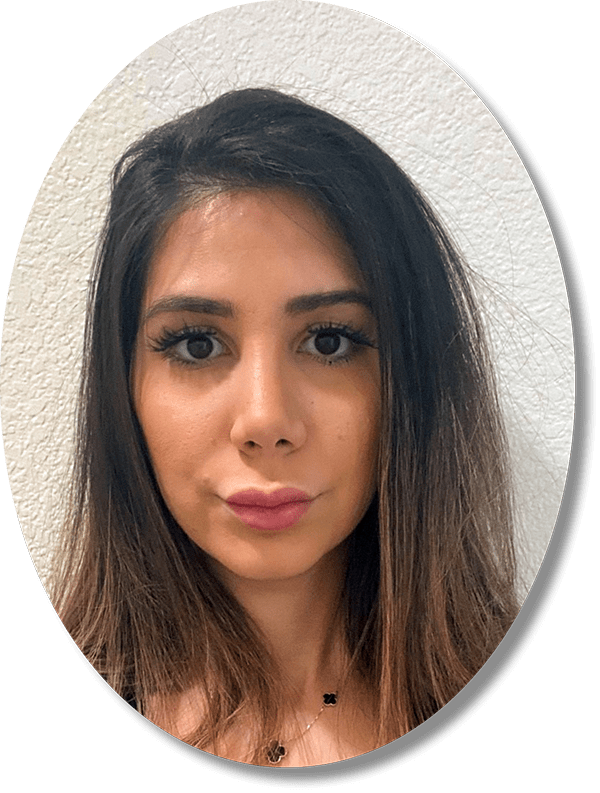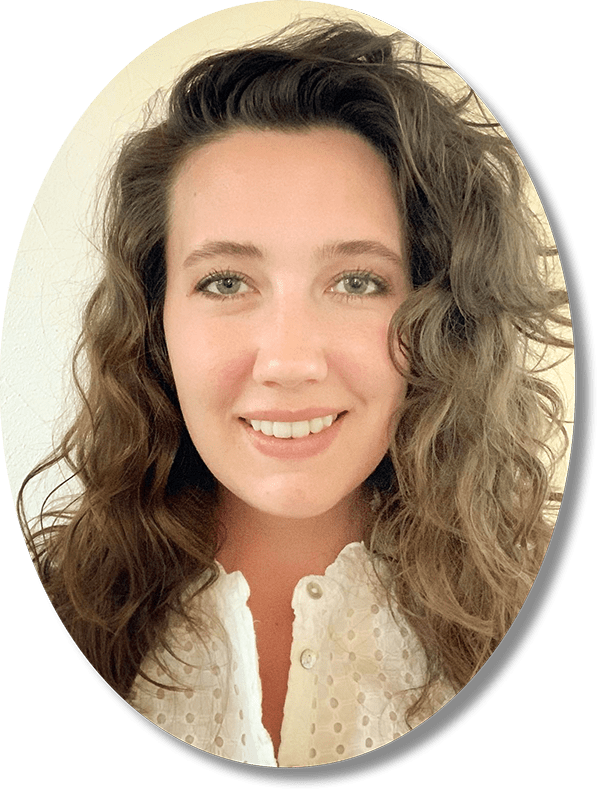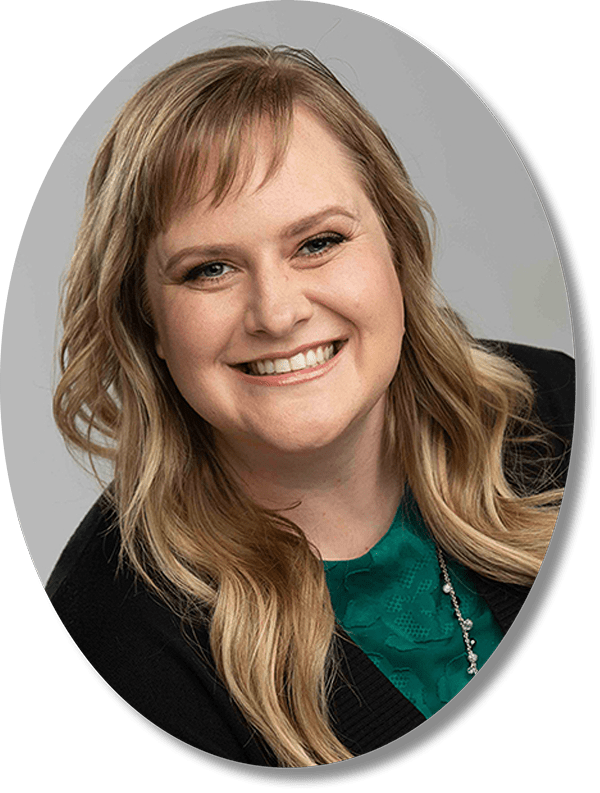The Service Learning Experience
Midwestern University Students See the Hidden Side of the “Invisible Disability”
Sarah Ghareeb and Andrea Bond thought their service learning experience with the Brain Injury Alliance of Arizona would be interesting. What they discovered was a whole new way to help.
Working closely with Brain Injury Alliance of Arizona Resource Facilitation Manager Brittany Sweeney-Lawson this past autumn, these Midwestern University School of Pharmacy students learned the importance of identifying survivors of brain injury. This newfound ability to recognize symptoms will make it easier to understand patients in distress at the pharmacy counter. As Sarah succinctly puts it, “This [experience] will make us better pharmacists.”
Normally, that would be the essence of this story: students learn a lot from their time with a non-profit organization. However, it’s only the latest chapter in their remarkable respective life journeys.
The Service Learning Experience
Midwestern University Students See the Hidden Side of the “Invisible Disability”
Sarah Ghareeb and Andrea Bond thought their service learning experience with the Brain Injury Alliance of Arizona would be interesting. What they discovered was a whole new way to help.
Working closely with Brain Injury Alliance of Arizona Resource Facilitation Manager Brittany Sweeney-Lawson this past autumn, these Midwestern University School of Pharmacy students learned the importance of identifying survivors of brain injury. This newfound ability to recognize symptoms will make it easier to understand patients in distress at the pharmacy counter. As Sarah succinctly puts it, “This [experience] will make us better pharmacists.”
Normally, that would be the essence of this story: students learn a lot from their time with a non-profit organization. However, it’s only the latest chapter in their remarkable respective life journeys.
 Sarah was raised in Iraq. After the war, her dad Raad had been supplying the army with sports equipment. However, in 2003, the situation wasn’t safe, and he was asked to leave overnight to Jordan. Three years later, he returned to Iraq to retrieve his possessions, and all hell broke loose.
Sarah was raised in Iraq. After the war, her dad Raad had been supplying the army with sports equipment. However, in 2003, the situation wasn’t safe, and he was asked to leave overnight to Jordan. Three years later, he returned to Iraq to retrieve his possessions, and all hell broke loose.
Raad was kidnapped by Al Qaeda and faced certain death. Held for two years, he prayed daily, hoping to be reunited with his family. Apparently, his visible displays of devotion appealed to one of his captors who quietly released him, telling him to just go home.
The Ghareebs—including Sarah’s parents and her older brother and sister—made a beeline for the United States, becoming the first Middle Eastern family in Rochester, Minnesota. Soon thereafter, her sister had enough of winter weather and moved to Arizona; the rest of the family followed her lead a few years later.
Sarah proceeded to earn her B.S. degree in biology at Arizona State University, then had her son Charbel. The 29-year-old student and mom now says she’s fulfilling her dream of going to pharmacy school. “This service learning experience has been a real eye-opener. It makes me appreciate how to deliver messages to brain injury survivors and be more understanding,” she affirms.
Additionally, Sarah notes, “people complain about COVID-19, but this is what it’s like every day for people with brain injury.”
 Then, there’s Andrea, who may be ready to make a big splash as a pharmacist, but this field wasn’t always on her radar. The 27-year-old grew up in Salida, Colorado, an hour from Leadville, where her father was a miner. Pharmacy was the farthest thing from her mind. Like Rudolph the Red-Nosed Reindeer’s loveable elf Herbie, she’d always wanted to be a dentist (or orthodontist).
Then, there’s Andrea, who may be ready to make a big splash as a pharmacist, but this field wasn’t always on her radar. The 27-year-old grew up in Salida, Colorado, an hour from Leadville, where her father was a miner. Pharmacy was the farthest thing from her mind. Like Rudolph the Red-Nosed Reindeer’s loveable elf Herbie, she’d always wanted to be a dentist (or orthodontist).
She had just begun attending the University of Colorado in Colorado Springs when her father passed away. Andrea returned to Salida, graduating from Western State University with a B.A. degree in general biology in 2015.
Taking two years off to explore her options, she thought she might work for the park service or in environmental sciences; however, in a turn of events, she ended up in finance for the next two years.
The dream to be a dentist persisted though, so she applied to both Midwestern University and the University of Colorado dental programs. She was surprised when she was recruited by Midwestern’s School of Pharmacy, but immediately accepted.
Today, Andrea couldn’t be happier with her career path. Her exposure to Brittany and the Brain Injury Alliance has made it easy, in her words, to “use what we learn and apply it to our future practice. Brittany has helped me recognize that survivors of brain injury have an invisible disability.”
She goes on to say, “they don’t necessarily only learn through verbal means, so when interacting with a survivor in our line of work, we may need to use visual prompts or write things down for them.”

Brittany is quite proud of both Andrea and Sarah. “As part of their desire to grow, they have taken to heart the importance of what we do at the Alliance,” she says. “What’s impressed me most is how eager they are to incorporate what they’ve learned during their time with us into to their careers as pharmacists.”
Two remarkable students.
Two distinct journeys.
Two bright futures.
ABOUT BRAIN INJURY ALLIANCE OF ARIZONA
The Brain Injury Alliance of Arizona (BIAAZ) is the only statewide nonprofit organization dedicated to improving the lives of adults and children with all types of brain injuries through prevention, advocacy, awareness and education. BIAAZ also houses the Arizona Brain Health Resource Center, a collection of educational information and neuro-specific resources for brain injury survivors, caregivers, family members and professionals.
What began in 1983 as a grassroots effort has grown into a strong statewide presence, providing valuable life-long resources and community support for individuals with all types of brain trauma at no charge.
The Brain Injury Alliance of Arizona:
- Works with Congressional Brain Injury Task Force
- Houses Arizona Brain Health Resource Center
- Hosts Statewide Opioid Use Disorder & Cognitive Impairment Workgroup
- Has Statewide Opioid Use Disorder & Cognitive Impairment Response team with peer support, training, and family wraparound services
- Facilitates Brain Health Advisory Council
- Manages statewide Neuro Info-Line: 888-500-9165





